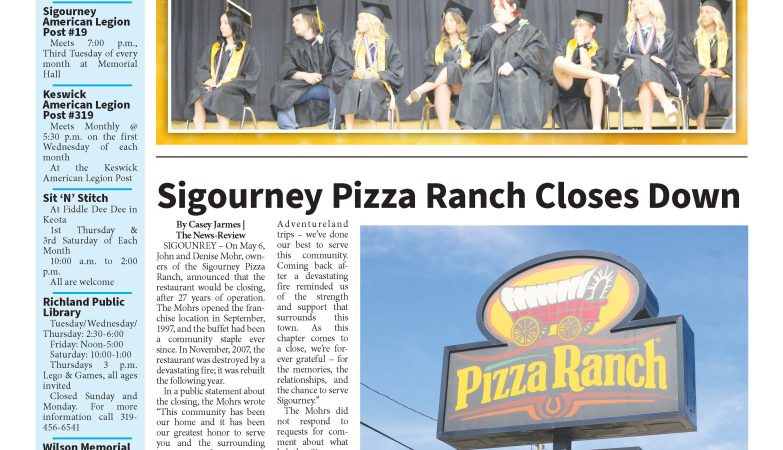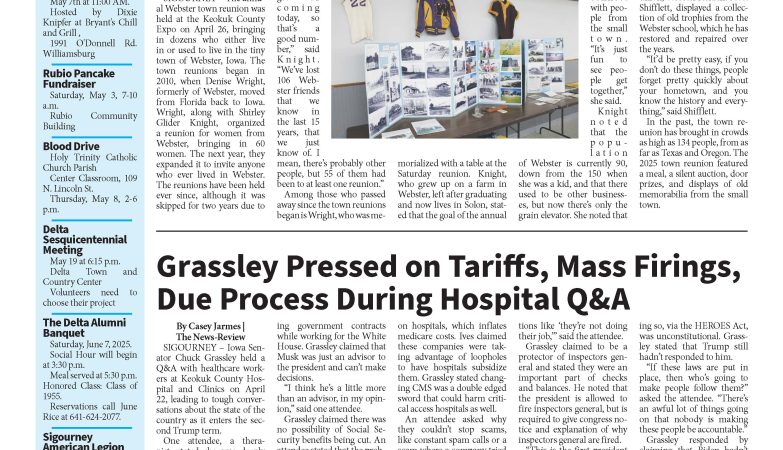By Casey Jarmes
Manifest Destiny was a common ideology during the 19th-century, the semi-religious belief that white Americans had been chosen by God to conquer the American continents, bringing with them American values like democracy and slavery. Manifest Destiny was used for the justification for the annexation of Texas and the resulting Mexican-American War, in which the U.S. took control of 525,000 miles of territory, what now makes up the Southwestern United States. Of course, the ideals of Manifest Destiny were not exclusive to the government and inspired private citizens like William Walker to try their hands at conquest as well.
William Walker was born in Nashville in 1824. He began and subsequently abandoned careers as a doctor, lawyer and newspaper editor. In 1849, Walker moved to San Francisco, a city with a ballooning population due to the gold rush. There, he was involved in three duels, two of which ended with him being shot.
In 1853, five years after the end of the Mexican-American War, Walker travelled to Guaymas, a city in the Mexican state Sonora, and asked the Mexican government to give him land to build a buffer colony on the border, which he claimed would be used to protect Americans from Native American raids. The Mexican government turned him down, so Walker gathered up a group of 45 mercenaries and returned, plotting to conquer the sparsely populated border states of Sonora and Baja California.
Quickly, Walker and his men managed to seize control of La Paz, the capital of Baja California. Walker declared that the entire peninsula was now an independent nation, called the Republic of Lower California, with himself as its president. Walker declared that this new country would have the same laws as Louisiana, where he had practiced law, which as a side-effect made slavery legal again in Baja California. Word of his apparent military successes got back to San Francisco, which led hundreds of new troops, many of them either inspired by Manifest Destiny or desiring to expand slavery, to head south and join Walker’s army.
What Walker was doing was called filibustering, a term which has had its meaning change over time. Traditionally, filibustering meant military expeditions in foreign lands carried out without permission of the government. Walker renamed his country to the Republic of Baja California and Sonora, despite not controlling any territory in Sonora. His ultimate plan was not to establish a real country, but to have it be annexed by the United States, similar to what had happened with Texas years earlier.
Unfortunately for Walker, he was really incompetent at controlling territory. He was forced to move his headquarters twice, to avoid being crushed by the Mexican army. His men spent most of their time robbing local ranches, leading to clashes with civilians that Walker pretended were military victories to bolster support. Still, soldiers began deserting en masse. The crew of Walker’s ship ditched him and sailed away with all of his supplies. Only a few months after taking La Paz, lacking supplies, facing an army he couldn’t defeat, and suffering from the arid conditions, Walker and his remaining 35 soldiers retreated to California and surrendered to the U.S. military.
Walker was arrested because, as it turns out, launching a military invasion of a country your nation has signed a peace treaty with is extremely illegal. But, after only eight minutes of deliberation, the jury decided to acquit Walker. His exploits, written about in the newspapers back in the U.S., had turned Walker into a folk hero.
News of Walker’s attempted conquest in Mexico found its way to Nicaragua, which was at the time locked into a civil war between the Legitimistas and Democráticos factions. The Democráticos leaders hired Walker to lead an army of mercenaries, then promptly died, leaving him in charge of their faction. Walker defeated the Legitimistas, seizing control of the country, then declared himself president. Walker’s regime was recognized as legitimate by American President Franklin Pierce.
Now in charge of his own nation, Walker dedicated himself fiercely to his favorite hobby: racism. He reinstituted slavery, ordered that English be the official language of Nicaragua, begged white people from the American South to move to Nicaragua, and seized property from Nicaraguans to give to settlers. Walker began publishing a newspaper, El Nicaragüense, that made up a fake indigenous legend about a grey-eyed leader who would one day come and liberate Nicaragua from the Spanish. Walker played into the legends he made up, calling himself the Grey Eyed Man of Destiny. Back in the U.S., Walker’s fame only grew, as playwrights wrote about his accomplishments and southerners fantasized about adding Nicaragua as a new slave state.
Walker began planning to conquer other Central American nations, something that the people of those nations took umbrage with. Costa Rica, Honduras, Guatemala and El Salvador united and went to war with Walker. Walker responded with brutality. When the Central American troops surrounded Granada, the then capital of Nicaragua, Walker’s men burned the city to the ground to keep it from being captured. During the Second Battle of Rivas, Walker threw corpses into water wells, contaminating the water supply and causing a cholera outbreak that spread to Costa Rica, killing nearly 10,000 civilians, a tenth of the country’s population.
During the same battle, Walker’s forces holed up in a well defended stronghold. A young Costa Rican drummer, Juan Santamaría, famously asked his fellow soldiers to take care of his mother, then charged in, carrying a torch. Santamaría was repeatedly shot, but reached the stronghold before he died, lighting it ablaze and securing victory for the Costa Ricans. Santamaría is remembered in Costa Rica as a national hero, while Walker is remembered as an infamous monster.
Walker’s downful, ironically, came when he made the mistake of interfering with another American’s control over Nicaragua. At the time, the Panama Canal didn’t exist, meaning the fastest way to get from one side of the Americas to another was by travelling from the Pacific up the San Juan River and across Lake Nicaragua, then taking a stagecoach to the Atlantic. This shipping lane was controlled by American ultrawealthy industrialist Cornelius Vanderbilt. During the Filibuster War, Walker had the bright idea to revoke Vanderbilt’s company charter and seize his steamships. Vanderbilt responded by funding and arming the Central American army, which crushed Walker’s forces.
In May, 1857, less than a year after declaring himself president, Walker was forced to surrender and return to the U.S. Six months later, Walker decided to help British filibusters conquer part of Honduras. He was quickly captured by the British Navy, who handed him over to the Honduran government, who executed him via firing squad.





